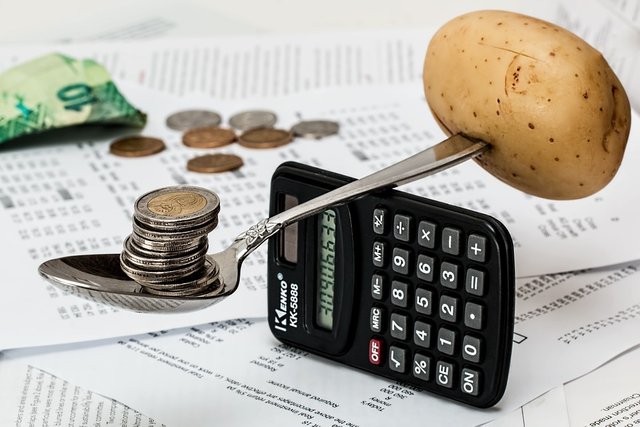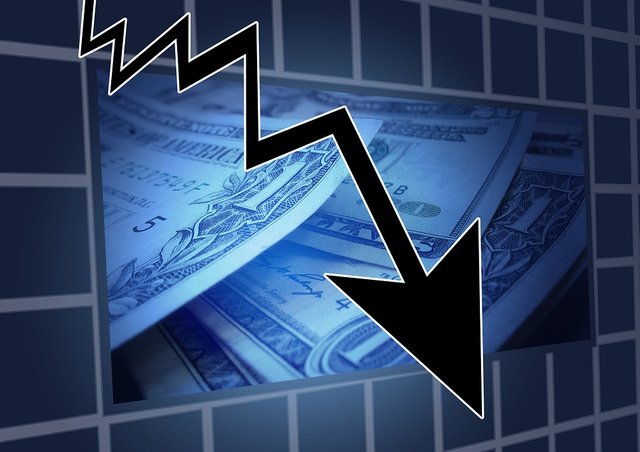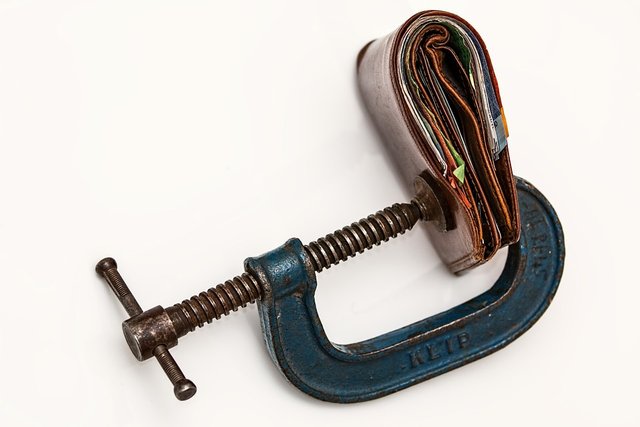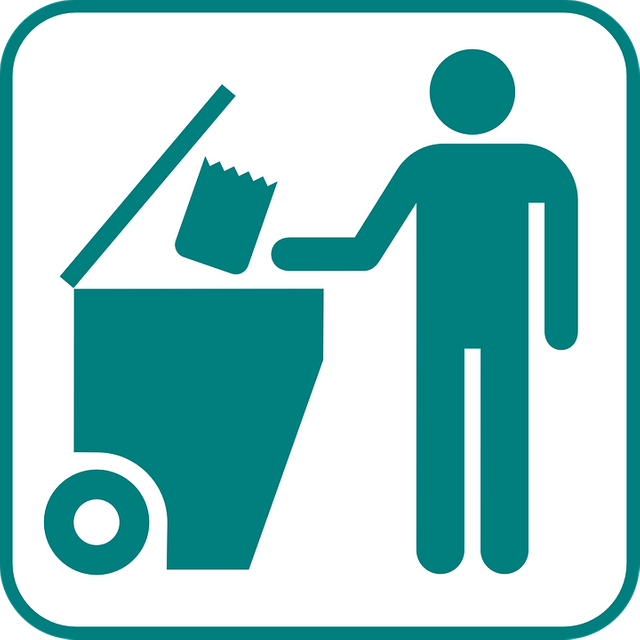Virtual Money - MMORPGs vs the Real World Money
(Any similarity with cryptocurrencies' environment is a mere coincidence).
One of the most attractive features of los MMORPGs is their ability to become a small parallel society, a fictitious world that somehow resembles ours despite the strange creatures that dwell theirs or the impossible magic that is casted. There's a common denominator in all human societies, no matter what kind they are: They have an economic system, even if it is simple barter. And MMORPGs, that create digital societies with their our rule sets, also had, since their birth, an economic system.

MMORPG basics:
The main difference between the virtual economies and the "real" ones is clear: sadly, our economy is not thought to be fun and enjoyable, our economy is a survival environment. It is never fair (all you have to do is watch the news or read a newspaper to know what I mean). In a MMORPG people, sometimes, pay to have fun, not to suffer the same problems they face in real life; and the economic system is not a minor concern for game developers when they try to entertain the users. After all, one of the appealing parts of any game is "upgrading" one's character/army/party; not only as in individual skills, but also upgrading their "belongigns" (I just noticed I've to abuse the "" for several words; so, from now on, I'll be totally omitting them unless it's totally necessary), to "grow up" -damn, that was fast- from a low level weakling beggar that aspires to be an adventurer to an authentic adventurer with more gear than hordes of newbies, able to lay waste to entire lands.
Economic needs:
The economic system, then, has to possess some kind of balance between "realism" that makes it a credible and some "tricks" to balance it, make it fair, and fun. This may sound easy, but it actually is a complex task that requires of lots of attention from the companies responsible of the games; where they actually (most of the time) hire economists.
This is something that really happens quite often. The fantasy worlds cross-over to real life situations, and knowing this: MMORPGs have served as test labs for several socioeconomic experiments. For example: A pandemic that infested WoW (World of Warcraft) attracted epidemiologists because of the implications about how human populations could react to a real world epidemic.
Some players setup "nursing camps" to heal the low levels in tandem for a week to prevent save them from death and the consequent loss of durability in the gear (that at that moment costed a LOT to repair!). Others, high level jerks, went to low level areas to infect newbies and kill them (because that was the highest level thing they could aspire to kill). Another group, secluded themselves into non-populated areas, away from the entire society (yeah, rogues rock!).
Capitalist building
This is a curious trivia: All the MMORPGs (at least the known ones) base themselves into capitalism. Not a single one attempted to experiment with another economic system. For instance, the two first problems the classic game Ultima Online had to face (the game that made the genre famous): hyperinflation and a Real Estate crisis.
Real Estate deficit
The Real Estate issue still has no clear solution: There's limited land in-game and you've to limit the size of the world to keep a reasonable population density (also, avoid the potential technological problems related to networking that come with a large world).
Hyperinflation
This problem is actually a consequence of the constant and clear sources of currency new players have (otherwise, they have no chance against older players; this is not the real world, remember?), to have a chance to become rich. As currency and items add up into the economy at a constant rate (coming from monster drops, NPC item sales and "manufacturing" that adds value to rather worthless items... and so on), these "assets" are never out of the game at the same speed; soon, there's so much money "printed" that it loses value very fast. Lacking of taxes (this is in some games, most serious ones implemented taxes and fees as draining systems), games use other mechanisms to balance the economy.

How is it done?
For example, quite often there's limits imposed to the maximum amount of money an NPC (Non Player Character) can pay (mercantilism); the superstar to keep a balanced economy are the "gold sinks": baiting players (baiting, not forcing) to spend gold and items. Vanity items with no real practical use, collectibles, and some with 1337 stats but at REALLY insane prices. Offering the service of "upgrading" items in exchange of gold with a risk of losing both is also a nice bait (the success ratio is adjusted based on the measurements of the whole server economy (gold+itemsvalue)/players). This way, money is put out of circulation. If this still does not work a "convertibility" process is called, where a few 0s are removed from all the rewards, prices and balances; buying some time until the next inflation wave comes. This looks like some stuff that was done at my country.

Mudflation
This is a common problem at MMORPGs, Mudflation (a mash-up between MUD, how these games were named originally; and inflation). The definition is rather simple: It is the loss of value of a virtual good thanks to the appearance of more modern ones.
Lets take a simple example: We buy a rather rare mount in exchange of a large sum of gold (a 100% legit "gold sink" as you may see). Some months later, the game is updated and that mount becomes a monster drop, easy to acquire: That in what you spent a lot of resources (gold and the time and items traded to get that gold) is now obsolete and common. This happens constantly in the real world, especially for techies; but in a game it is a situation that is rather avoided, since it generates a frustrating feeling in players... and a potential ragequit... and a loss of a subscription (that is made of REAL money).
In this latter years some issues arose from virtual crimes: Just as in the real world, anywhere where a legal economy is established, there's a parallel black market (that link heads to a renowned game black market, check it out!). A classic example is the case of a Sims Online player that created a cyber-brothel where people payed money in exchange of cyber-sex... with underage avatars (yeah... sick). This case did not repeat (as far as we know), and it seems impossible for an "illegal substances" market to ever settle in: Why forbid the trade of something that can be simply wiped out of the game files? And here comes the last big economic problem I want to talk about: The interaction between virtual goods and REAL goods.

Virtual becomes real
In the majority of MMORPGs it is totally forbidden (and prosecuted) to exchange game goods for real money. This is: Even when we can pay to the game company for a certain item, as in free to play games, you cannot pay another person in the real world for the same service; as in, a magic sword. Now, from forbid to "it is not done" there's a long way; there's players that really like some games and do not have enough free time to acquire what they wish in "legit" ways, they cannot go farm that monster that spawns every 6 hours to get a 10% chance of getting his leather to make that superb armor: So, they pay at the black market.
Because of the reason I will explain later, game companies hunt down these black markets (this issue actually worries them more than game cheaters!). These transactions are usually done outside of the game (since it is vox populi that "private" channels in the games are anything but private), yet the obligation of in-game trading is imperative: There's where the moderators, hunters, work, seeking any transaction with suspicious tones; ridiculously cheap or free. If you see a player trading a magic item that costs months of farming for 1 coin... one can pretty much guess that the payment is done with another currency, and not the in-game one.

Prosecution
Why is the black market prosecuted? One could claim that it's not a problem of the game companies, if someone wants to pay another player a couple hundred dollars for a game item that holds no value with the potential risk of being scammed... It's a problem of the naive player. But actually, this takes as implied fact that the game items hold no value: If a stable parallel black market is established, then one can trade any game item for real money... The virtual money is no longer virtual! In a world like ours, where economy is highly speculative and the cash we've in the bank is nothing but paper printed with no goods (as it used to be gold) to back it up, it is just a series of numbers in a spreadsheet: What difference would there be between USD and World of Warcraft gold if you can use both to buy a car? Everyone would be "printing" money in-game inflating the common currencies!
As soon as virtual money is freely interchangeable for palpable goods, game companies become banks: Their money is registered and legitimated... And they would have to pay taxes for that to compensate the inflation they generate. They would have to abide with the same laws and regulations banks are under. Ah, taxes... Nobody wants to pay taxes for play money! Users, would also have to pay taxes. If anybody with a fat bank account can buy a 5 million dollar house with WoW gold: Why would that person be exempt of taxes that any normal worker has to pay?
To be able to "cross" to economies one needs to equalize the rules that rule them, so that they can work in the same environment, with variations not much different than the ones we have at the US and Europe.
Taxes should be implemented, and a HUGE responsibility would fall on the game companies shoulders by being forced to balance economic system they host (and, they are game companies, not banks!); since they can affect the economics of the environment those company holders LIVE under. Of course, we will never reach that point for a reason stated before, real economy does not have to be fun or fair, and there's no way to fight that. On the other hand, if in a game we see that there's no chance that we can be economically successful we always do one thing: Log out, delete account, and Google for another more entertaining and enjoyable game.

If you liked this post and its informal way of talking about sciences, please, follow me for more!
Leave a comment either for good or for bad reviews. I take everything as constructive, and I really appreciate the feedback, even from trolls (at least a troll read it before being himself!).
Copyrights:
All the previously used images are of my authory or under a CC0 license (Source: pixabay), unless openly stated.
All the Images created by me possess a WTFPL licencing and they are free to redistribute, share, copy, paste, modify, sell, crop, paste, clone in whatever way you want.
Brilliant post, congratulations, thank you for sharing this valuable information
Great post
I want to upvote this many times. Love this line, "Everyone would be "printing" money in-game inflating the common currencies!". So it is in the best interests of the game companies to shut down black markets. What do they normally do to shut down offenders?
They perform lawsuits, and when everything fails (in the case of blizzard), they use they gigantic networking power to DDOs the respective servers.
Also, any account suspicious of that illegal activity, and all the accounts that are found "linked" to them are deleted. No claims admitted.
They are pretty drastic.
If you liked it, I wont get mad for a resteem :D
Nicely written and an enjoyable read.
Capitalism is not a defined system as much as it is a description of how economies work naturally. Folks trade with each other based upon their own needs; middlemen pop up to provide a value in expediting trades; other folks invest in, or capitalize, market opportunities by their money, time or effort.
I sold my WOW account 2 months ago. I spent 2 months before that farming the hell out of the Savage expansion and playing the market to get gold which added value to the account.
I turned my time on the MMO into real money!
I don't know what you're talking about. Any Economic System where trade and production is owned by private parties, is capitalist.
Did you get your monthly subscriptions also paid off the account? Where did you sell it at? I normally use ElitePvPers for all my transactions, since I've no experiences in other markets.
what I'm saying is that capitalism isn't a made up system like socialism; capitalism is the ways things are. even in socialist systems, black markets spring up to meet market demand that planned economies can't produce, often foodstuffs
no anti-semite polemicist cooked the books and made up capitalism so he could sell anti-bourgeoisie books instead of a selling anti-semite books (Marx used 1818 pre-Industrial economic data to "describe" 1848)
I used playerauctions, I think. I needed that cash and I didnt want Blizz screwing up the transaction
This post has been ranked within the top 50 most undervalued posts in the second half of Nov 09. We estimate that this post is undervalued by $5.28 as compared to a scenario in which every voter had an equal say.
See the full rankings and details in The Daily Tribune: Nov 09 - Part II. You can also read about some of our methodology, data analysis and technical details in our initial post.
If you are the author and would prefer not to receive these comments, simply reply "Stop" to this comment.
Yes, thank you, I already know that from before :p